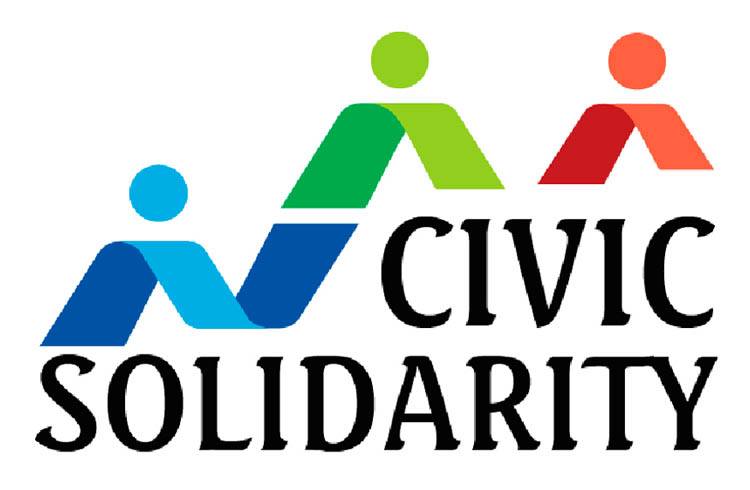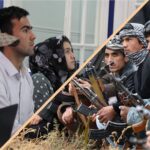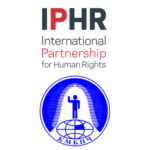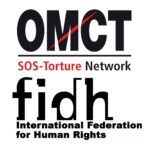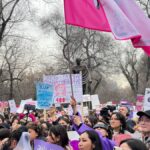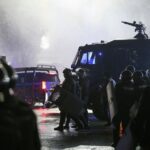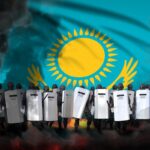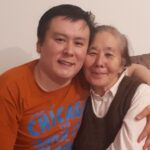The undersigned organizations, members of the Civic Solidarity Platform, express their concern regarding the United States government’s response to widespread peaceful protests against police violence. The protests, begun in response to an extrajudicial killing of a citizen by a police officer, have been largely peaceful and law-abiding. In response, police officers have repeatedly escalated encounters with protesters and used unwarranted violence. Police departments have applied military gear more appropriate for war than for calming a civilian demonstration. And the President of the United States has urged state governors to increase violent responses, and expressed his intent to call in active duty military soldiers. The state response, which has threatened peaceful civilians and journalists, violates international standards on the use of force and policing of assemblies and OSCE commitments and guidance by OSCE bodies. A central document in this guidance are the Guidelines on Freedom of Peaceful Assembly issued by OSCE/ODIHR and the Venice Commission of the Council of Europe. Key provisions from this document form the core of the Civic Solidarity Platform’s Bratislava Declaration of December 2019, which called on OSCE participating states to review their compliance with these standards, and to strengthen ODIHR’s monitoring and advisory activities relating to the right to peaceful assembly.
The demonstrations began with the killing on 25 May of George Floyd by a Minneapolis police officer. The incident occurred while many civil society organizations and governments gathered for an OSCE Supplementary Human Dimension Meeting on “Addressing All Forms of Intolerance and Discrimination”. Participants were unable to bring attention to the issue at the meeting, but the legitimate passion of these demonstrations should be addressed through all possible means by all OSCE interlocutors with the United States government. Endemic racism, inequality, and racially-motivated violence should be confronted by all those in positions of authority in the US.
As we noted in the Bratislava Declaration: “Assemblies contribute to conflict prevention and peace.” It is well established that neither the use of violence by a small number of people nor damage to property suspend the right to protest of all those gathered and do not provide a license to escalate police responses or to use excessive or deadly force In all circumstances, the police response must remain within the limits of the law and seek to de-escalate rather than inflame interactions with the public by resorting to life-threatening weapons.
The far-reaching militarization of the police, both in equipment and approach, should be questioned fundamentally. The deployment of thousands of National Guard soldiers in more than 30 states and Washington, D.C. in response to civil unrest, President Donald Trump’s exhortations for greater use of violence on social media and in a phone conversation with state governors, and his threat to deploy federal armed forces against protestors only place more lives at risk.
The OSCE Representative on Freedom of the Media has already expressed his concern regarding “the wave of violence against journalists covering protests. (…) Many of these incidents involved arrests and use of force by police, including rubber bullets, pepper bullets, tear gas and pepper spray, as well as acts of violence by protesters,” In many instances it appeared police knowingly used violence against journalists without justification. The OSCE Representative called on the authorities “to exercise restraint and to ensure that journalists can work safely while reporting on public protests.”
We call on all those within the OSCE, its independent institutions and all participating states to urge relevant U.S. authorities to utilize the OSCE’s 30 years of experience in advising states on effective and community-oriented policing practices, in the management of assemblies, and in redressing fundamental and deep-rooted ethnic inequalities. This includes the ODIHR, the expertise of NGOs in member states, and the experience of fellow OSCE participating state governments. We also call on the government of the United States to observe OSCE standards and human rights norms it has agreed to uphold.
Demonstrations in solidarity with the U.S. protestors against systemic racism and violent and one-sided policing practices are being held in a range of OSCE countries. These protests have started to also call attention to the state of affairs on these issues in their own countries. We call on all OSCE participating states to engage in a profound debate about these demands, taking into consideration conclusions and recommendations from international review bodies such as the UN’s Committee on the Elimination of Racial Discrimination and of the European Commission against Racism and Intolerance.
June 8, 2020
Signed by the following CSP members:
- Netherlands Helsinki Committee
- Human Rights First, USA
- Helsinki Foundation for Human Rights, Poland
- Association of Ukrainian Human Rights Monitors on Law Enforcement, Ukraine
- Public Verdict Foundation, Russia
- Human Rights Center of Azerbaijan
- Macedonian Helsinki Committee
- Helsinki Citizens’ Assembly – Vanadzor, Armenia
- DRA – German-Russian Exchange, Germany
- Bulgarian Helsinki Committee
- Albanian Helsinki Committee
- Public Association Dignity, Kazakhstan
- International Partnership for Human Rights, Belgium
- Helsinki Committee for Human Rights, Serbia
- Austrian Helsinki Association for Human Rights and International Dialogue
- Сenter for Civil Liberties, Ukraine
- ZARA – Zivilcourage und Anti-Rassismus-Arbeit, Austria
- Institute for Reporters’ Freedom and Safety, Switzerland
- Belarusian Helsinki Committee
- Center for the Development of Democracy and Human Rights, Russia
- Armenian Helsinki Committee
- Swedish OSCE-network
- Hungarian Helsinki Committee
- Truth Hounds, Ukraine
- Kazakhstan International Bureau for Human Rights and the Rule of Law
- Promo LEX, Moldova
- Public Association “Human Rights Movement: Bir Duino-Kyrgyzstan”
- Center for Participation and Development, Georgia
- Freedom Now, USA
- Human Rights NGO “Helsinki Association”, Armenia
- Women of the Don, Russia
- OMCT – World Organization against Torture, Belgium
- Human Rights Center ZMINA, Ukraine
- Human Rights Monitoring Institute, Lithuania
- SOVA Center for Information and Analysis, Russia
- Norwegian Helsinki Committee
- Crude Accountability, USA


